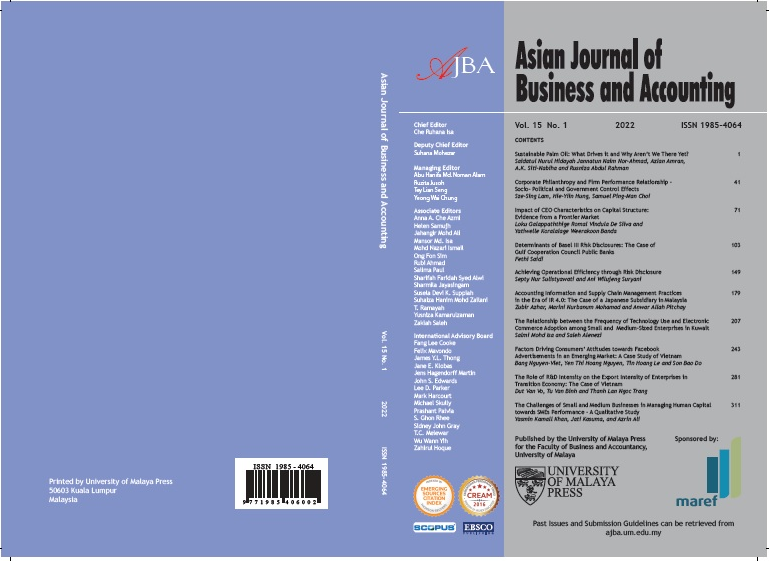Impact of CEO Characteristics on Capital Structure: Evidence from a Frontier Market
DOI:
https://doi.org/10.22452/ajba.vol15no1.3Keywords:
CEO Characteristics, Capital Structure, Frontier Market, Non-Finance Companies, Sri Lanka, Upper Echelon TheoryAbstract
ABSTRACT
Manuscript type: Research paper
Research aims: This study examines the impact of CEO characteristics on the capital structure of non-financial listed companies in Sri Lanka
Design/methodology/approach: This study employs multiple regression selecting a sample based on a data set from a panel of 123 mainboard listed companies which covers all the non-financial sectors of the Colombo Stock Exchange for an eight-year period from 2012 to 2019.
Research findings: This study finds a significant positive relationship between male CEOs and capital structure. It suggests that male CEOs tend to employ more debt within the capital structure due to their aggressive nature and overconfidence. Similarly, this study finds a significant positive relationship between CEO’s age and capital structure. The evidence provides that as they age, CEOs tend to have more experience, better risk management capabilities, and enhanced business sense to take proper financing decisions at the right time with more debt financing.
Theoretical contribution/originality: Since there is no research conducted on CEO characteristics and capital structure in the Sri Lankan context, this study has made a significant contribution to the local literature and mitigates the gap in the frontier market literature.
Practitioner/policy implications: The findings are helpful for the organisations when appointing key decision-makers to run the organisation and make strategic choices based on formulating corporate policies among debt and equity.
Research limitation: The study has been limited to six CEO characteristics; there are other factors such as risk appetite levels that may have implications and the study has not focused on any impact towards real financing decisions.
Keywords: CEO Characteristics, Capital Structure, Frontier Market, Non-Finance Companies, Sri Lanka, Upper Echelon Theory.
JEL Classification: G32








